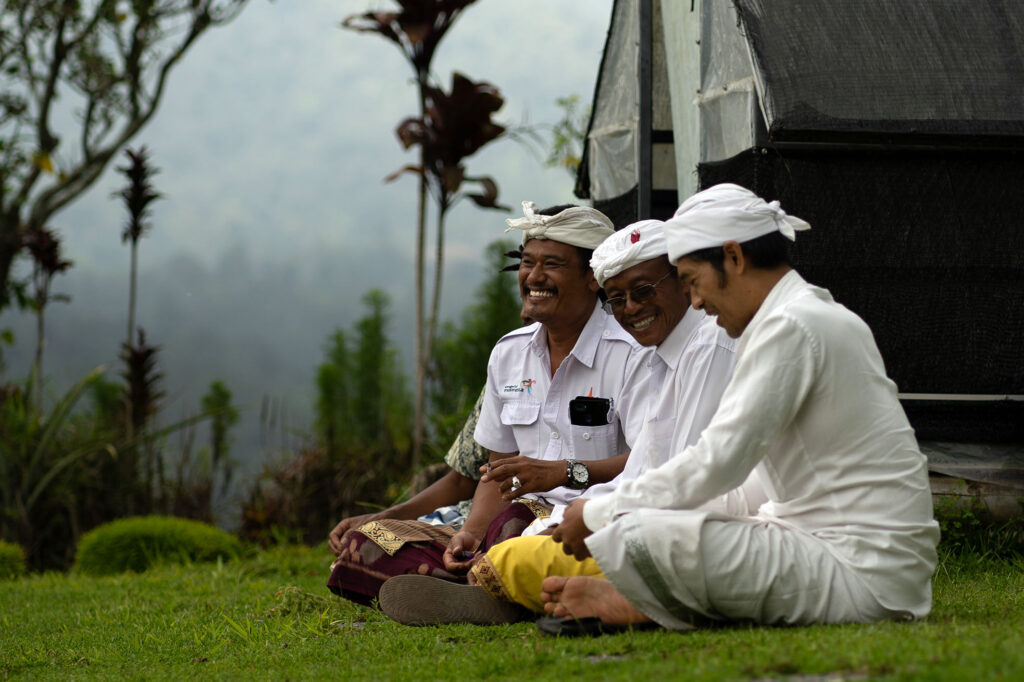Aliansi Masyarakat Adat Nusantara

Far-reaching Agroecology School in Indonesia
The Milestone
By 2023, the Indigenous school at Aliansi Masyarakat Adat Nusantara (AMAN), called sekolah adat, had reached 20,000 people across Indonesia. Young people, women, and people with disabilities alike attended the school to learn about Indigenous People’s rights, leadership building, Indigenous practices of agroecological farming, and food sovereignty. AMAN provided accompaniment to ensure that the participants were able to implement agroecology farming across Indigenous territories. AMAN continues to expand its food sovereignty and agroecology schools initiatives, enabling them to reach 50,000 Indigenous People in the coming year.
Why This Matters
The participation of Indigenous Peoples in agroecology in Indonesia is essential for leveraging traditional knowledge, promoting biodiversity, ensuring cultural relevance, empowering communities, and advancing social justice within agricultural systems. However, the industrialization of agriculture and massive land grabbing significantly threatens Indigenous communities’ ability to practice agroecology, making AMAN’s agroecology school more important than ever.
Movement Action
Also known as the Indigenous Peoples’ Alliance of the Archipelago, AMAN has made significant strides in supporting Indigenous communities across Indonesia. AMAN’s membership includes 2,449 member communities, which consists of 22 million residents, 21 regional chapters, 114 local chapters, three partner organizations, and two economic institutions. As a result of their efforts, 20.7 million hectares of Indigenous territories—an area larger than the United Kingdom—have been mapped. This mapping, combined with AMAN’s advocacy, have increased local regulations in support of Indigenous rights from just two to 159, and led to government recognition of an additional 3 million hectares of Indigenous land. Research shows that Indigenous-managed lands often have higher biodiversity, lower deforestation rates, and more resilient ecosystems.
How They Are Doing It
Economic Independence and Livelihoods: As part of its vision to drive economic independence of Indigenous Peoples, AMAN has supported its members to initiate cooperatives to sell seeds, coffee, handicrafts, and herbal medicines. All produce sold through the cooperatives are farmed using agroecology practices, which align with Indigenous knowledge of farming. AMAN operates its own cooperative market, coffee shop, and art gallery named Gerai Nusantara, which platforms Indigenous artists and entrepreneurs.
Community Education: Through its agroecology school, AMAN offers its members an opportunity to deepen their knowledge on agroecology practices, exchange experiences and insights with one another, connect with farmers movements, and access seed banks.
Legal and Policy Advocacy: AMAN drafts and advocates for forest protection and Indigenous Peoples’ rights laws across all levels of governance. AMAN was instrumental in drafting Indonesia’s Indigenous rights bill and advocated for its parliamentary approval. When the bill failed to pass, AMAN turned to a local strategy, working with local government institutions to draft ordinances at their level.
Land Rights and Mapping: After the 2013 landmark judgment supporting Indigenous Peoples’ land rights, AMAN initiated the Ancestral Domain Registration Agency, an ongoing participatory mapping exercise that aims to register all ancestral territories in the country. Additionally, AMAN is working with Indonesia’s Geospatial Information Agency to ensure the inclusion of Indigenous maps in the government’s national mapping initiative.
Direct Grantmaking to Indigenous People: In collaboration with allies Wahana Lingkungan Hidup Indonesia and Konsorsium Pembaruan Agraria, AMAN recently launched the Nusantara Fund. The Fund is a self-led, direct grantmaking mechanism for Indigenous Peoples who are working on land tenure rights and access to water and land.
Thousand Currents Partnership
AMAN has been a Thousand Currents partner since 2022. Over the course of that time, our partnership has supported mutual learning on the rights of Indigenous Peoples—and the struggle to uphold them—in Indonesia. We continue to be impressed with the range of wins that AMAN has achieved over its history. Through a recent expansion of our partnership, we established a direct relationship with the Nusantara Fund as one of the regional funds that we support with both funding and accompaniment. As we move forward, Thousand Currents aims to support AMAN’s vision and goals for widespread agroecological uptake across Indonesia.
All Case Studies
Bufete para Pueblos Indígenas
Kenyan Peasants League
Nous Sommes La Solution
Southern Peasants Federation of Thailand
Thousand Currents Partnership Model
